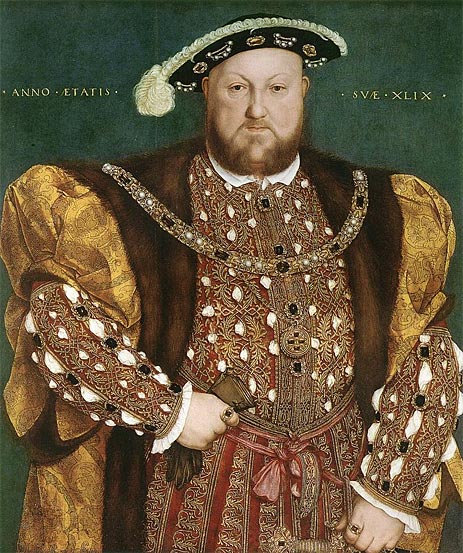I have always had a problem equating what happened in England under Henry VIII as reform. A few aspects of it might appeal to Lutherans but not much, really. Just as Henry could agitate against Luther when it might have worked in his favor, so he might claim something from a real Reformation for the same purpose. To say that Henry was interested in reforming the English Church would be a stretch. At best, he took over being its head so that he might get his way in the bedroom. He sacked the monasteries and stole property and lands to dole out as bribes to the landed gentry who were not friendly to his whims. But reform is a word too noble for what happened in England (and what happened there was not really accomplished in full until Elisabeth (the daughter he never wanted) finished what he began.
Great story, great intrigue, great casting, and great props -- all to be sure -- but if you want a real Reformation, better stick with Germany and Luther. Which remains the problem with the Church of England. Great ceremony, great pomp, great history, and great props but not much under the surface. Welby has presided over another step toward ignominy for a church that deserved better than Henry and, to quote a famous movie line, coulda been a contenda. Instead, Holbein's body of work is more like postcards of a train wreck than a chronicle of a Reformation. But, then again, Holbein never claimed the title. It was claimed for him. Perhaps by those who would not know a real Reformation if it slapped them in the face.

No comments:
Post a Comment